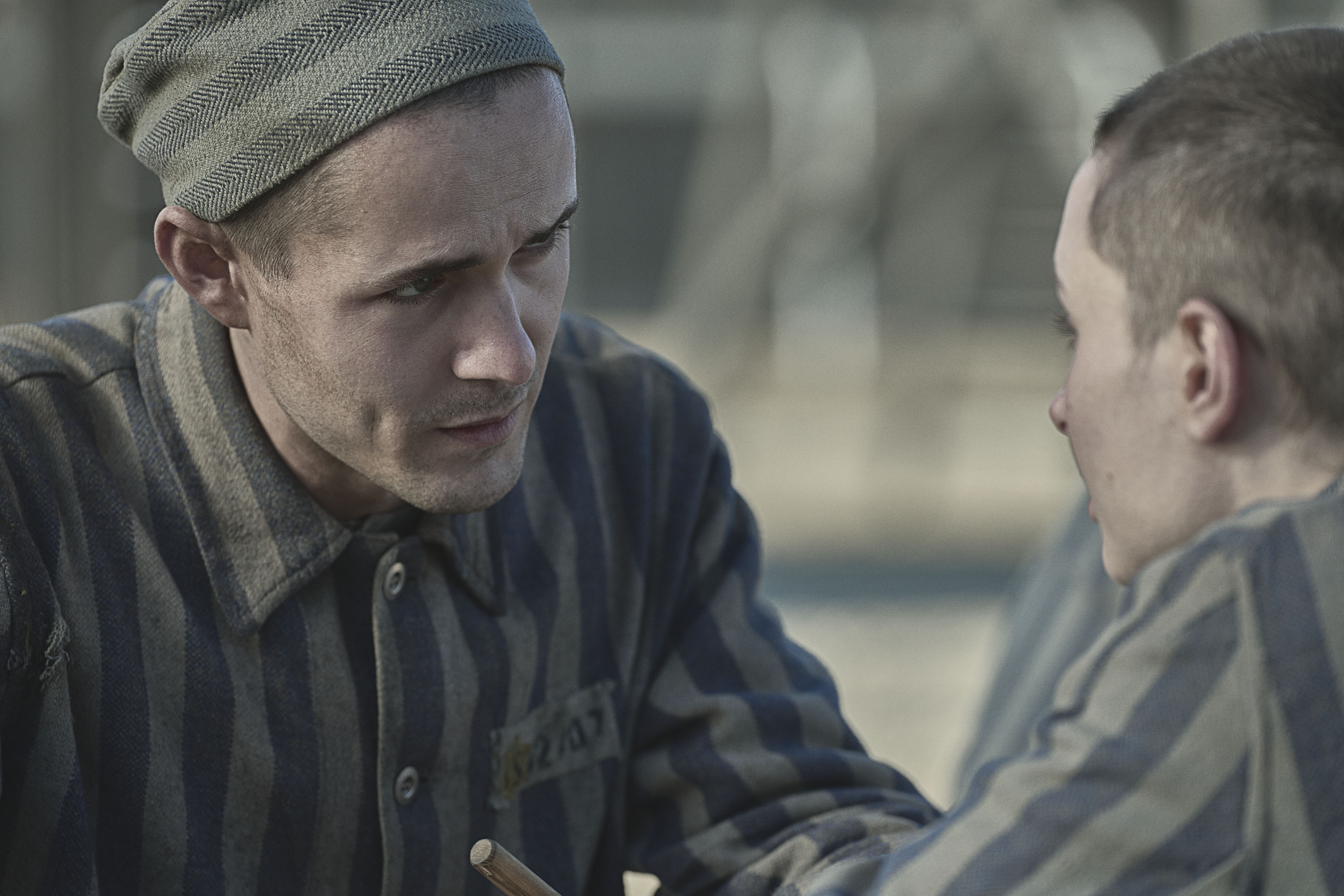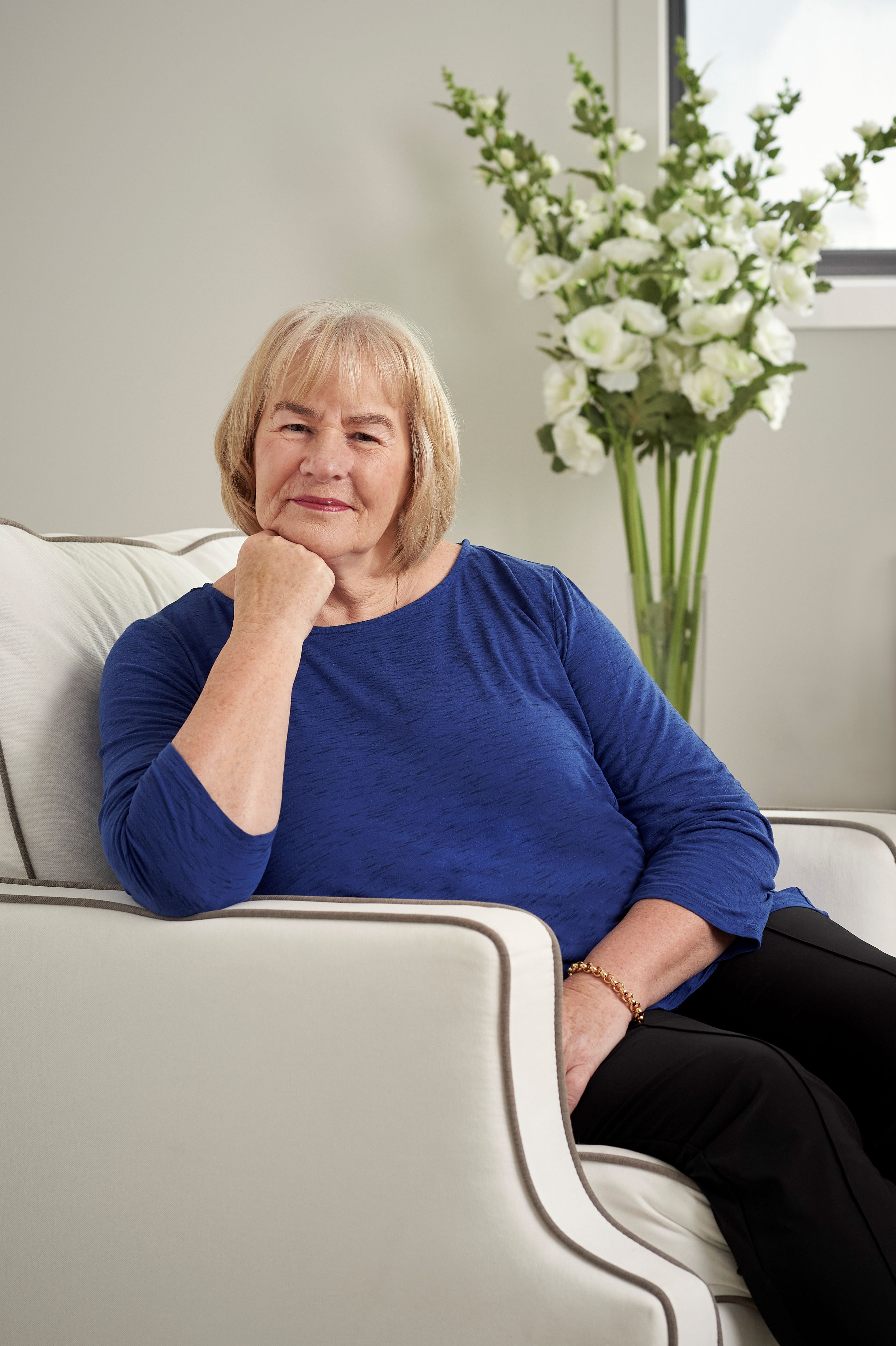The Tattooist Of Auschwitz author Heather Morris on why now is the perfect time for a TV adaptation
The novelist discusses the new Sky adaptation of her bestselling book
Author Heather Morris says she doesn’t have “a creative bone in my body”.
This might be hard to believe, considering she wrote The Tattooist Of Auschwitz – a book club favourite that has sold over 13 million copies worldwide since it was published in 2018, spending a combined 85 weeks on the Sunday Times bestsellers list.
Inspired by true events, it tells the story of Slovakian Jew Lale Sokolov who was imprisoned at Auschwitz-Birkenau in 1942, where he was tasked with the job of tattooing fellow prisoners with their unique numbers. After tattooing a young woman called Gita, the pair fell in love – both surviving the camp against the odds to eventually reunite on the outside. They married and started a new life in Melbourne, Australia.
Born in New Zealand and also living in Melbourne, in the early Noughties Morris was a social worker in a hospital with aspirations of being a writer. She was connected with Sokolov through mutual friends and he told her his life story – which Morris turned into The Tattooist Of Auschwitz (Zaffre, £9.99). It’s now been adapted into a major Sky miniseries.
View this post on Instagram
“No, I don’t have a creative bone in my body to be able to tell a story purely from my brain,” Morris, 70, explains.
“I find ordinary people, particularly those who may have lived through an extraordinary period of time, so interesting and so inspiring.”
Morris was peculiarly well-placed to tell Sokolov’s story. From her social work, she dealt with acute trauma (which she describes as being from an isolated incident that “just happened”).
“So it’s a different level to Lale’s, which was historical trauma, but the effect on the listener can still be the same if you let it transfer to you, and that’s what you’re always on your guard for. Don’t let that pain, that trauma, that guilt transfer to you. You can’t help them if that happens.
“It didn’t always work out that way with me and Lale, because I wasn’t used to historical trauma. He got to me, many times. But my wonderful colleagues and family saw it before I did.”
View this post on Instagram
But the main skill she brought, Morris says, “had nothing to do with writing… It was the simple art my great-grandfather taught me when I was a girl: to shut up and listen. And that’s what I did – I let him talk, and I listened.”
This is reflected in the first episode of the miniseries, available on Sky Atlantic and NOW from May 2. The adaptation differs slightly to the book in that it’s not purely about Sokolov’s time at the biggest Nazi concentration camp, but also features a second timeline, where Morris meets the elderly man and hears his story.
Morris is portrayed by Yellowjackets star Melanie Lynskey, and it marks something of a full circle, as the author initially wrote Sokolov’s story as a screenplay.
The only reason it became a book was because Morris “couldn’t get anybody who had the potential to make it into a feature film to look at it – and trust me, I tried”, she admits.

Jonah Hauer-King plays Lale Sokolov in the TV adaptation
Sokolov died in 2006 at age 90, so he never saw his story be told globally. But Morris, who acted as a story consultant on the show, says: “His dream was to have it on a screen – he had thought the big one in the theatre, but I think he’d be very delighted with the little one.
“Lale being Lale, he would think – well, of course it’s about me! Jonah [Hauer-King, who plays the young Lale] – he’s a good-looking boy, I’m a good-looking boy.
“He would be dancing on the rooftop to read scripts that depicted his love for Gita and their time in that place. It’s what he wanted – he’s now got it, and yes sadly he’s not here, but something tells me he knows.”
Gita died in 2003 age 78, but Morris has seen all the episodes with the couple’s son, Gary. “That was probably one of the most emotional things,” she says.

Harvey Keitel as the older Lale Sokolov and Melanie Lynskey as Heather Morris in the TV adaptation
“Watching him, watching his parents’ story play out. He’s a very emotional cookie is Gary – lots and lots of crying, my hand – I thought he was going to break it at several points, he squeezed [so hard]. He was sitting beside me, and every now and then his head was on my shoulder sobbing.”
So, why is now the right time to bring Sokolov’s story, and indeed that of the atrocities of the Holocaust, to the small screen?
“That’s an easy one. There’s always going to be a perfect time, because it needs to be told – and retold, and told again,” Morris notes.
She was recently in New York, attending a screening of the first episode at The Jewish Museum. Pretty much everyone there, she suggests, “already knew about the Holocaust. They had their own stories, because they were telling me them. So many wanted to share their little bit about their grandparent or their parent,” says Morris.
“We now have to get it to the screens of those who don’t know it. It was quite humbling, or sad, actually, to hear about the statistics of the people in the US who have never heard of the Holocaust, or the other group, who want to deny it happened. Hopefully, even if we reach just a few of those, that’ll do.”

All Morris’ books are based on real-life events and people
People coming up to Morris and telling her their stories has become a common theme since she published The Tattooist Of Auschwitz – and that’s how she’s happened upon the stories for all her books since – including Sisters Under The Rising Sun, which tells the story of women imprisoned by the Japanese during World War II (released in paperback by Zaffre in July this year).
She says “every one” of her books is about ordinary people in extraordinary times.
“I’ve got no generals in the army, or people whose names are known and out there – they are ordinary people,” she says.
“I say that, though sometimes I think they’re quite extraordinary. But Lale pulled me into place when I said to him one day that every time I was with him, I was with living history. He would go, ‘No, I’m just an ordinary man’.
“So they actually don’t want to be known as anything other than just an ordinary person who did what they had to do to survive, and help others where they can.”
The Press Association
Latest posts by The Press Association (see all)
- BBC to air two-part Call The Midwife Christmas special - December 23, 2024
- 6 mind sports to exercise your brain and keep you sharp - December 20, 2024
- Quiz: What classic Christmas food or drink are you? - December 20, 2024
- Leftover turkey and watercress pie - December 20, 2024
- Catherine and William choose family shot for Christmas card photograph - December 19, 2024




















